7 Reasons Not to 'Clean Up' Your Fall Garden
My belief in leaving the garden alone in fall was cemented last year on a December morning, when a robin landed on a garden chest where I keep my tools. It balanced on the edge where some snow was melting and dripping to the deck below. The robin arched its head downward and pecked at each droplet. Soon a bluebird landed right behind the robin on the edge of the chest. Then another bluebird. All three were now lined up, ready to take their turn at the melting snow. I have little doubt that if I hadn't left the garden up, creating a welcoming space, I'd never have seen them. And I have little doubt that winter wouldn't have meant so much, or been easier to get through, without the living beauty outside my door in a "dead" season so many of us gardeners unnecessarily loathe. Here are seven of the many reasons to leave your fall garden standing.
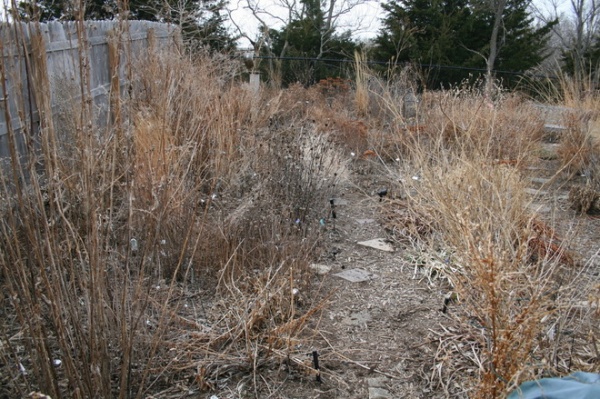
1. Why work when it's cold? Look, I'm tired; you're tired. So leave the garden alone. Plus it's getting cold out. Do you really want to be outside working? Isn't there a football game on or some pumpkin-spice latte to savor? Let the garden be for your own health and sanity.
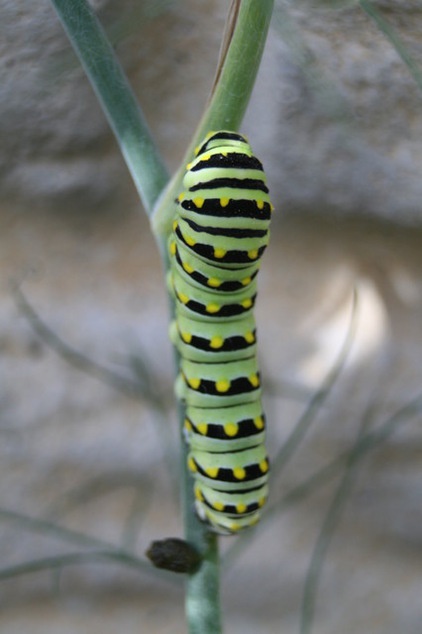
2. Wildlife is hibernating. Lots and lots of insects and frogs, and who knows what else, are out there in your garden overwintering in leaf litter, on twigs, even in the top layer of soil. What happens when you "clean up" the leaves and chop down the plants? You might be tossing out a black swallowtail chrysalis or a mantis egg case, or stepping on a mourning cloak butterfly.
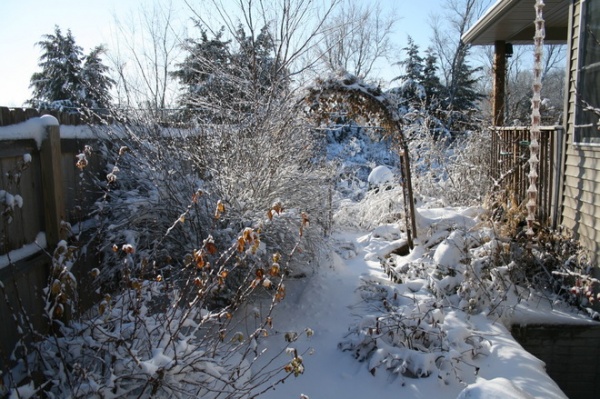
3. Protect you plants. Leaving the perennials standing will help them gather snow. That snow in turn will insulate the roots when it gets really cold and also add moisture to the soil. That's a double win for low-maintenance gardening. Besides, isn't this image just gorgeous? Viva snow!
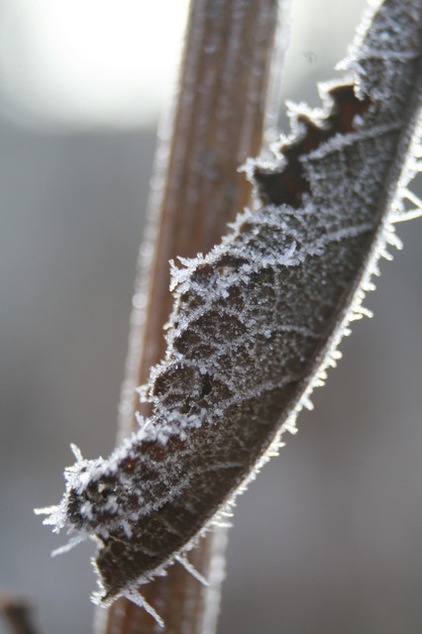
4. Discover a new dimension. You won't want to miss frosty mornings when every leaf, stem and seed head is accented with fascinating patterns of silvery shadows — halos of ice and snow that make the garden exquisite. And did you know that a snowflake is a fractal — a mathematical equation — just like coastlines, mountain ranges, trees, sunflowers and even the human circulatory system? Everything in nature can be mapped out with math, and nowhere is that more obvious than with a winter frost. Take your kids outside and expose them to a healthy double groan — math and nature.
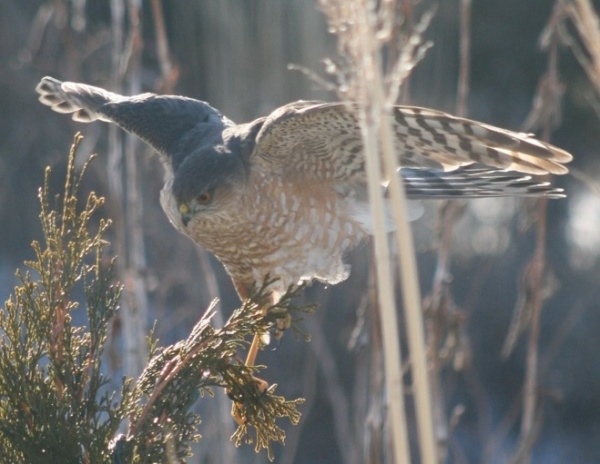
5. Enjoy new neighbors. Leaving up your plants welcomes all sorts of wildlife you'd never see, even though they're quite common. One year this sharp-shinned hawk visited because juncos were taking refuge in the thick garden cover. The hawk did eventually nab a meal, but that's OK — the garden was helping everyone, doing what nature does best and right out the back door. What a cure for seasonal affective disorder.
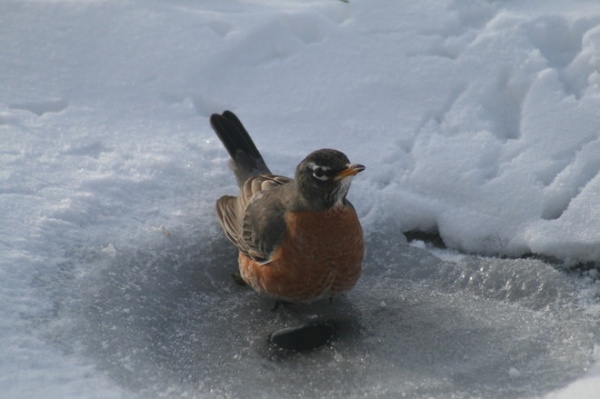
6. Even robin redbreasts will stop by and surprise you. Did you know there are robins around in winter? They tend to roost in groups, going about only when thirsty or hungry. A heated birdbath is great, but so are all of those fermenting berries on shrubs and trees. Lots of other songbirds will also be enjoying seeds from standing perennial cover, too.
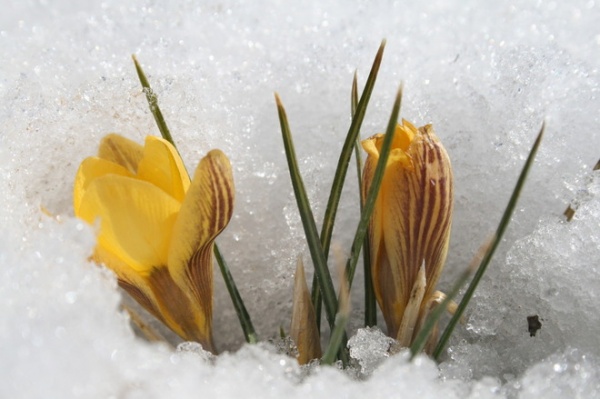
7. Gardens thrive in all four seasons. When the first spring blooms arise, you won't feel like you missed them (as much), because so much was going on in your garden all winter long — leaving the plants up makes winter seem shorter. Those first spring flowers won't seem as much like a relief as a confirmation that a garden never really sleeps, and you'll be seeing that firsthand in all four seasons.
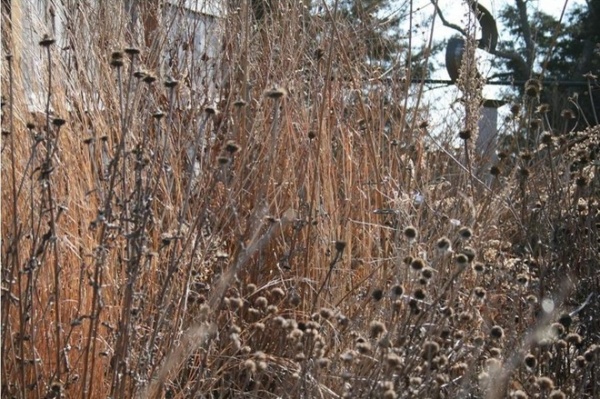
"Winter interest" is a landscape term that means there's something beautiful to look at during the cold season. Usually, that means grasses or redtwig dogwoods, but any old perennial will do — like the ones shown here. Winter interest isn't just for us, though; it's for birds, butterflies, frogs and soil microbes munching on leaves and making the garden healthier for summer. A lot will be going on if you leave the garden up until a spring cut-down — get out there and enjoy it this winter!
Tell us: How do you help natural processes in your garden all year long? What gives you the greatest winter interest?












